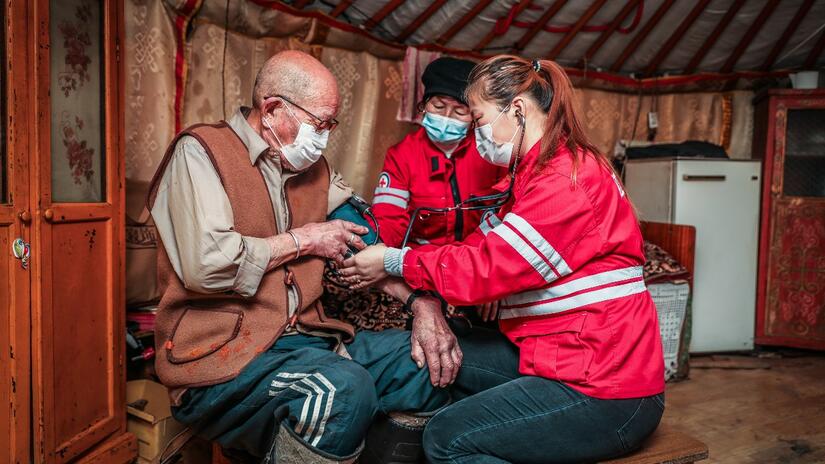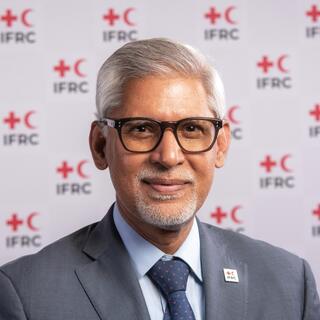It is an honour to co-host today’s event as part of the Group of Friends on Universal Health Coverage and speak on behalf of the International Federation of Red Cross and Red Crescent Societies, comprising 192 National Societies and millions of staff and volunteers.
Universal Health Coverage, which embodies the right of all people to quality, accessible, affordable, and available health services, reverberates deeply with the IFRC’s core mission to act in the interest of the most vulnerable and alleviate human suffering.
Since 2018, we have been scaling up our work on UHC and aligning ourselves with the WHO’s programme of work. As a member of UHC2030, we supported Country Focus Groups before and after the 2019 High Level Meeting to share lived experiences, challenges and achievements in UHC from populations often left behind.
This year, the IFRC conducted country consultations across the world with communities and civil society groups to identify barriers to accessing basic health services and to provide key inputs to the State of UHC Commitment report.
Despite all progress, we’re witnessing that many vulnerable groups and marginalized populations lack access to lifesaving health services.
One year from today, the High-Level Meeting on UHC must serve as a juncture for making the political commitments to strengthen health systems for future generations.
First, we must prioritize the health needs of the most vulnerable, especially in situations of disasters, climate crisis, health emergencies and violence. Governments must tackle stigma and discrimination and build trust by integrating vulnerable communities into policy making itself. Women and girls have reported greater difficulties in accessing healthcare, and people on the move are often completely left out of national health schemes.
Second, we must invest in ensuring safety and protection of community health workers and volunteers, including our Red Cross and Red Crescent volunteers, who have a deep understanding of the risks, vulnerabilities and inequalities that affect the health status of their communities and represent a key resource by working with the formal health system to deliver services. The role of community first responders in ensuring improved and timely coverage of essential health services became even more obvious during the COVID-19 pandemic.
Third, governments should develop community health strategies through improved collaboration between public health services, communities, and civil society organizations. More investment is needed in scaling up risk communication and community engagement as a key component of people-centred health systems. We strongly believe in empowering communities and ensuring their meaningful engagement in decision making.
Our National Societies, as neutral and impartial actors, can translate the needs of communities into policy, social protection systems, infrastructure, laws and governance issues. Health systems should also be backed by better public health emergency laws that enable systematic responses to pandemics and health emergencies – we have just launched a guidance on public health emergency law to support this.
Lastly, and importantly, there is no health without mental health, especially in crisis situations. Health system strengthening means integrating and resourcing mental health and psychosocial support services for all who may need them.
Excellencies, colleagues, access to health services is not a privilege and should not be treated as such.
We cannot afford to lose the opportunity of next year’s High-Level Meeting and cannot waiver: achieving Universal Health Coverage is the only way forward.
We are committed to continuing work with governments and other partners to implement our shared commitments to UHC and stronger health systems for everyone, everywhere.
Thank you.


